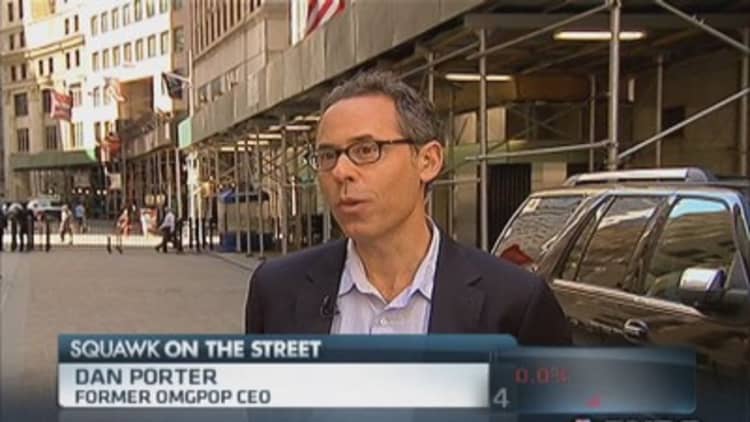Zynga, to many investors, is a cautionary tale.
In the months preceding its 2011 IPO, some analysts estimated the company to have a market cap of $15 billion to $20 billion. At the last minute, that was dropped to $7 billion. And the company's shares quickly took a dive after trading commenced. Today, the company's market cap sits at less than $3 billion.
Many investors don't pay a lot of attention to Zynga these days, but maybe they should. Bolstered by new leadership and a turnaround plan that seems to be working, the company is impressing analysts, who say it could be on the verge of a comeback.
And it all hinges, they say, on new CEO Don Mattrick.
"Don has laid the foundation for a comeback," says John Taylor, managing director of Arcadia Investment Corp. "Obviously for that to happen, you need games to bring the audience back, but what he has done is change the culture there. He has brought in fresh people and gotten rid of a lot of the toxins that were at Zynga. And he has focused people on achievable goals."
Read MoreNew game consoles sell, not games
Mattrick — who led Microsoft's Xbox division during the Xbox 360's lifespan — is firmly in charge at Zynga these days. Founder Mark Pincus recently stepped down from his role as chief product officer and is no longer a part of the company's day-to-day operations (though he remains chairman of the board).
In the meantime, Mattrick has wooed several gaming veterans to the company, including Alex Garden, who left his position as general manager of Xbox Live to become president at Zynga, and David Lee, who assumed the CFO role after serving as senior vice president of enterprise finance at Best Buy.
(Zynga declined to comment on the record or make any executives available for this story).
Bookings in the first quarter came in at $161 million, exceeding expectations, and the guidance for Q2 was also higher than expected. And some analysts expect the stock price to virtually double in the next year.
Read MoreGame on! Software and mobile big at E3 show
"Now that Zynga appears to be executing on Mr. Mattrick's plan, we expect its shares to trade up over the next few months, and expect them to hit our [$7 per share] price target within 12 months if Zynga continues to execute," says Michael Pachter, managing director of equity research at Wedbush Securities.
While Zynga tightens its belt — including laying off 300 people, 15 percent of its workforce at the end of January— it's also expanding through acquisition, buying developer NaturalMotion for $527 million. That could jump start Zynga's transition from a Web-based gaming company to a mobile one. And, that, say analysts could bolster its pipeline of future titles and set it up for future success.

"I think the business needed an overhaul and needed to expand beyond a social gaming company — and Don's in the process of doing that," says PJ McNealy, founder of Digital World Research. "They're buying IP that will roll out over the next six,12,18, 24 months."
There are, of course, still plenty of risks and hurdles for Zynga. The company still has a small presence in the mobile gaming world. And the market leadership it once enjoyed has dissipated. (King.com is now the top gaming company on Facebook, which has historically been Zynga's chief revenue source.) On top of that, gamer interest in all Web-based games seem to be fading as mobile offers a more compelling experience.
And while the company has posted encouraging numbers lately, it has yet to show it can be consistently profitable. And, like many of its competitors, the majority of its players don't pay a dime for its games. Analysts estimate that less than 2 percent of its monthly unique users are cash contributors.
Read MoreCola wars spread to Twitter and LeBron James' legs
Game companies live and die on their software, though. Zynga is already in the process of attempting to reinvigorate its biggest franchises—such as "Farmville" and "Words With Friends." And the acquisition of NaturalMotion should let it speed its expansion into mobile, with a focus on the racing and people simulation genres.
And that, in part, is what has piqued the curiosity of analysts.
"I wouldn't bet against them," McNealy says. "I think they're buying compelling IP."
— By Chris Morris, Special to CNBC

